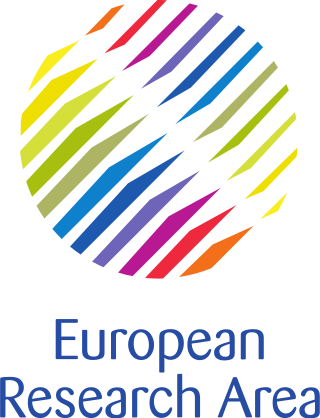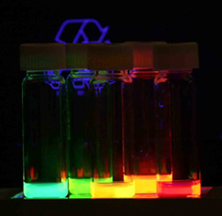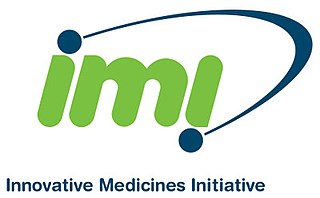Related Research Articles

École Centrale de Nantes, or Centrale Nantes, is a grande école - a French engineering school - established in 1919 under the name of Institut Polytechnique de l'Ouest. It provides Bachelor, Graduate, Master, and PhD Programmes based on the latest scientific and technological developments and the best management practices.

Eureka is an intergovernmental organisation for research and development funding and coordination. Eureka is an open platform for international cooperation in innovation. Organisations and companies applying through Eureka programmes can access funding and support from national and regional ministries or agencies for their international R&D projects.

The United Nations Office for Outer Space Affairs (UNOOSA) is an office of the U.N. Secretariat that promotes and facilitates peaceful international cooperation in outer space. It works to establish or strengthen the legal and regulatory frameworks for space activities, and assists developing countries in using space science and technology for sustainable socioeconomic development.

The European Research Area (ERA) is a system of scientific research programs integrating the scientific resources of the European Union (EU). Since its inception in 2000, the structure has been concentrated on European cooperation in the fields of medical, environmental, industrial, and socioeconomic research. The ERA can be likened to a research and innovation equivalent of the European "common market" for goods and services. Its purpose is to increase the competitiveness of European research institutions by bringing them together and encouraging a more inclusive way of work, similar to what already exists among institutions in North America and Japan. Increased mobility of knowledge workers and deepened multilateral cooperation among research institutions among the member states of the European Union are central goals of the ERA.
The Framework Programmes for Research and Technological Development, also called Framework Programmes or abbreviated FP1 to FP9, are funding programmes created by the European Union/European Commission to support and foster research in the European Research Area (ERA). Starting in 2014, the funding programmes were named Horizon.
The European Institute of Innovation and Technology (EIT) is an independent body of the European Union with juridical personality, established in 2008 intended to strengthen Europe's ability to innovate. The EIT’s three “core pillars” of activities are: entrepreneurial education programmes and courses across Europe that transform students into entrepreneurs; business creation and acceleration services that scale ideas and budding businesses; and innovation-driven research projects that turn ideas into products by connecting partners, investors, and expertise.
Cleaner production is a preventive, company-specific environmental protection initiative. It is intended to minimize waste and emissions and maximize product output. By analysing the flow of materials and energy in a company, one tries to identify options to minimize waste and emissions out of industrial processes through source reduction strategies. Improvements of organisation and technology help to reduce or suggest better choices in use of materials and energy, and to avoid waste, waste water generation, and gaseous emissions, and also waste heat and noise.

The Brandenburg University of Technology Cottbus–Senftenberg was founded in 1991 and is a technical university in Brandenburg, Germany with campuses in Cottbus and Senftenberg. The university has 185 professors, 640 additional academic staff and more than 7,000 students, of which 2,350 are of foreign origin from more than 100 nations.
The Energy Performance of Buildings Directive is the European Union's main legislative instrument aiming to promote the improvement of the energy performance of buildings within the European Union. It was inspired by the Kyoto Protocol which commits the EU and all its parties by setting binding emission reduction targets.

Quantum technology is an emerging field of physics and engineering, encompassing technologies that rely on the properties of quantum mechanics, especially quantum entanglement, quantum superposition, and quantum tunneling. Quantum computing, sensors, cryptography, simulation, measurement, and imaging are all examples of emerging quantum technologies. The development of quantum technology also heavily impacts established fields such as space exploration.

The Innovative Medicines Initiative (IMI) is a European initiative to improve the competitive situation of the European Union in the field of pharmaceutical research. The IMI is a joint initiative of the DG Research of the European Commission, representing the European Communities, and the European Federation of Pharmaceutical Industries and Associations (EFPIA). IMI is laid out as a Joint Technology Initiative within the Seventh Framework Programme. Michel Goldman was the first executive director, from September 2009 until December 2014.
The European Biofuels Technology Platform (BiofuelsTP) is a European Seventh Framework Programme initiative to improve the competitive situation of the European Union in the field of biofuel.
The European Rail Research Advisory Council (ERRAC) is a European Seventh Framework Programme initiative to improve the competitive situation of the European Union to revitalise the European rail sector.
The European Space Technology Platform (ESTP) is a European Seventh Framework Programme initiative to improve the competitive situation of the European Union in the field of space technology. It continues to work during Horizon 2020 (2014–2020).
The European Steel Technology Platform (ESTEP) is a European Seventh Framework Programme initiative to improve the competitive situation of the European Union in the field of steel technology. The main objective of the programme is to produce a Strategic Research Agenda (SRA).
The European Technology Platform for Wind Energy (TPWind) is a European Seventh Framework Programme initiative to improve the competitive situation of the European Union in the field of wind energy.
The European Technology Platform for Sustainable Chemistry (SusChem) is a European Technology Platform (ETP) initiative to improve the competitive situation of the European Union in the field of chemistry in three domains: Industrial Biotechnology, Materials Technology, and Reaction and Process Design.

The Jan Dlugosz University in Czestochowa [JDU; Polish: Uniwersytet Jana Długosza w Częstochowie] is a public university located in Częstochowa, in the Silesian Voivodeship of Poland. Founded in 1971 as a teacher training college, it was transformed into a higher teacher education school in 1974 with two faculties, the Faculty of Mathematics and Natural Sciences, and the Faculty of Pedagogy. Now the university comprises six faculties, the Faculty of Humanities, the Faculty of Social Sciences, the Faculty of Law & Economics, the Faculty of Science & Technology, the Faculty of Art Education and Wladyslaw Biegański Collegium Medicum, some inter-faculty teaching centres for Foreign Language Area Studies, physical education and sports, and approximately 5,500 students and about 700 academic staff members.

Joinup is a collaboration platform created by the European Commission. It is funded by the European Union via its Interoperability Solutions for Public Administrations Programme.